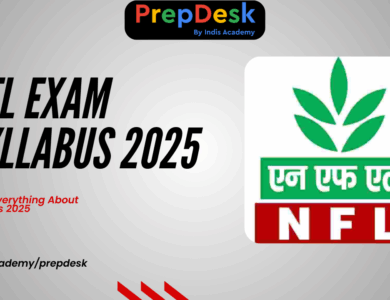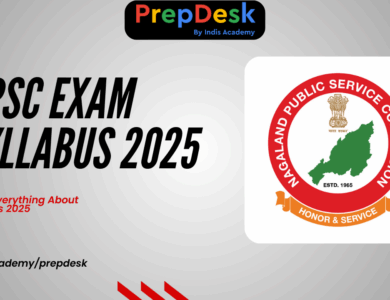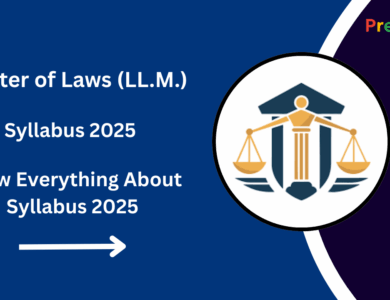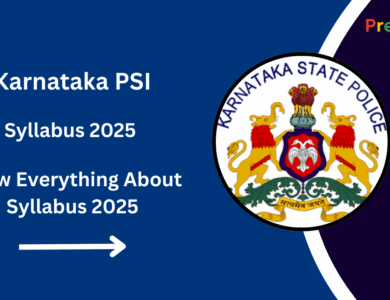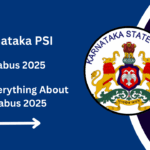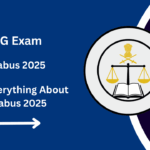M.Tech Computer Science Syllabus 2025 – Detailed Semester-Wise Subjects & PDF Download
Explore the updated M.Tech Computer Science Syllabus 2025 with semester-wise subjects, core topics, electives, marks distribution, and free PDF download. Includes AI, ML, Cloud, Data Science, and research project details.
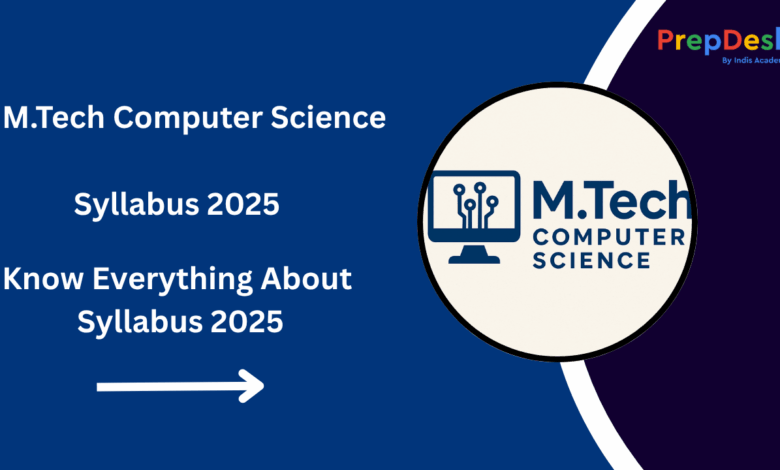
The Master of Technology (M.Tech) in Computer Science is a prestigious postgraduate program designed to equip students with advanced theoretical knowledge and practical skills in computing. The M.Tech Computer Science syllabus 2025 has been structured to meet the demands of modern technological advancements, ensuring graduates are prepared for high-level roles in research, development, and industry. With the rapid evolution of fields like Artificial Intelligence, Machine Learning, Big Data, Cloud Computing, and Cybersecurity, the syllabus integrates both core computer science concepts and emerging technologies.
This article provides a comprehensive guide to the M.Tech Computer Science syllabus 2025, including semester-wise topics, detailed descriptions, exam patterns, marks distribution, recommended books, preparation tips, specializations, and FAQs. Students can also access the syllabus in PDF format for easy reference.
Exam Overview
| Feature | Details |
|---|---|
| Course Name | Master of Technology (M.Tech) in Computer Science |
| Course Level | Postgraduate |
| Duration | 2 Years (4 Semesters) |
| Eligibility | B.E./B.Tech in Computer Science or related discipline |
| Admission Process | Entrance Exams (e.g., GATE, University-specific tests) + Interview |
| Average Course Fee | ₹1.5 – ₹3.5 Lakhs (varies by institution) |
| Mode of Study | Full-time / Part-time |
| Career Options | Software Architect, Data Scientist, AI Engineer, Research Scientist, Academician |
Semester-wise Syllabus Details
Semester 1 – Core Computer Science Foundations
| Subject | Topics Covered | Marks Distribution |
| Advanced Data Structures & Algorithms | Complexity analysis, Trees, Graphs, Advanced Sorting, Dynamic Programming | Theory: 60, Practical: 40 |
| Advanced Computer Architecture | Parallelism, Multiprocessing, Memory hierarchy, Pipelining, Cache coherence | Theory: 70, Practical: 30 |
| Theory of Computation | Automata theory, Grammars, Turing Machines, Computability | Theory: 80, Assignments: 20 |
| Research Methodology | Research design, Data analysis, Technical writing | Theory: 60, Project: 40 |
Description: The first semester builds a strong foundation in core computational concepts, algorithms, and architectural principles while introducing students to research methodologies.
Semester 2 – Advanced and Emerging Technologies
| Subject | Topics Covered | Marks Distribution |
| Machine Learning | Supervised & unsupervised learning, Neural networks, Deep learning | Theory: 60, Lab: 40 |
| Big Data Analytics | Hadoop, Spark, Data mining, NoSQL databases | Theory: 70, Practical: 30 |
| Cloud Computing | Virtualization, AWS/Azure/GCP basics, Cloud security | Theory: 60, Lab: 40 |
| Elective I | Cybersecurity / Computer Vision / Blockchain | Theory: 60, Practical: 40 |
Description: This semester emphasizes advanced computing techniques and emerging technologies, preparing students for the evolving job market.
Semester 3 – Specialization & Research
| Subject | Topics Covered | Marks Distribution |
| Advanced Artificial Intelligence | NLP, Reinforcement learning, AI ethics | Theory: 70, Project: 30 |
| Elective II | IoT / Quantum Computing / Data Science | Theory: 60, Practical: 40 |
| Dissertation Phase I | Research proposal, Literature review, Initial implementation | Internal: 50, External: 50 |
| Seminar & Technical Presentation | Research communication, Paper presentation | Internal: 100 |
Description: Students begin their specialization and initiate their dissertation work, with a strong focus on research and industry applications.
Semester 4 – Dissertation & Industry Exposure
| Subject | Topics Covered | Marks Distribution |
| Dissertation Phase II | Full-scale research, Implementation, Thesis writing, Viva-voce | Internal: 40, External: 60 |
| Internship / Industry Project | Industry collaboration, Problem-solving in real scenarios | Internal: 100 |
Description: The final semester is entirely dedicated to research completion and gaining practical exposure through internships or industry projects.
Syllabus PDF Download
Students can download the complete M.Tech Computer Science Syllabus 2025 PDF from official university websites or AICTE’s approved syllabus repository for reference and printing.
Recommended Books
| Subject | Recommended Books |
| Advanced Data Structures | “Introduction to Algorithms” – Cormen et al. |
| Computer Architecture | “Computer Architecture: A Quantitative Approach” – Hennessy & Patterson |
| Theory of Computation | “Introduction to Automata Theory” – Hopcroft & Ullman |
| Machine Learning | “Pattern Recognition and Machine Learning” – Christopher Bishop |
| Big Data Analytics | “Big Data: Principles and Paradigms” – Rajkumar Buyya |
| Cloud Computing | “Cloud Computing: Concepts, Technology & Architecture” – Thomas Erl |
Preparation Tips
- Understand Core Concepts: Build a strong foundation in algorithms, programming, and system design.
- Hands-on Practice: Work on lab assignments, coding challenges, and open-source projects.
- Stay Updated: Follow the latest trends in AI, cloud, and big data.
- Research Skills: Learn paper writing, data analysis, and presentation skills.
- Time Management: Plan semester projects and dissertation timelines effectively.
Specialization Options
- Artificial Intelligence & Machine Learning
- Cybersecurity & Cryptography
- Cloud Computing & DevOps
- Data Science & Analytics
- Computer Vision & Image Processing
- Internet of Things (IoT)
- Quantum Computing
Conclusion
The M.Tech Computer Science syllabus 2025 is designed to produce industry-ready professionals and researchers equipped with the latest technical expertise. The combination of theoretical depth, hands-on labs, specialization choices, and research work ensures graduates can excel in academia, industry, or entrepreneurial ventures.
FAQs
Q1. What is the duration of M.Tech in Computer Science?
A: The course duration is 2 years, divided into 4 semesters.
Q2. Is GATE compulsory for admission?
A: GATE is required for many institutes, but some universities have their own entrance exams.
Q3. Can I pursue M.Tech Computer Science after MCA?
A: Yes, if the university considers MCA as an eligible qualification.
Q4. Which specialization is best in M.Tech Computer Science?
A: AI/ML, Data Science, and Cybersecurity are currently in high demand.
Q5. What are the job prospects after M.Tech CSE?
A: You can work as a Software Architect, AI Engineer, Data Scientist, Researcher, or in academia.
